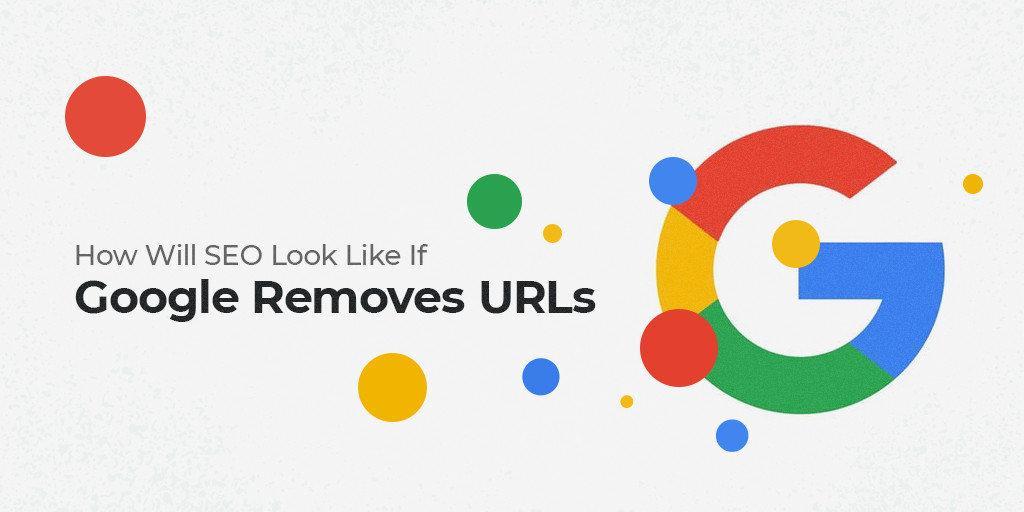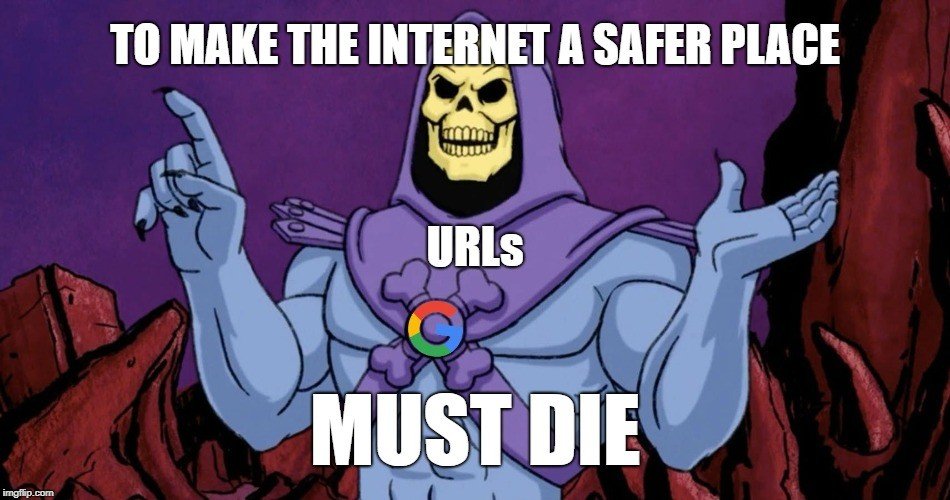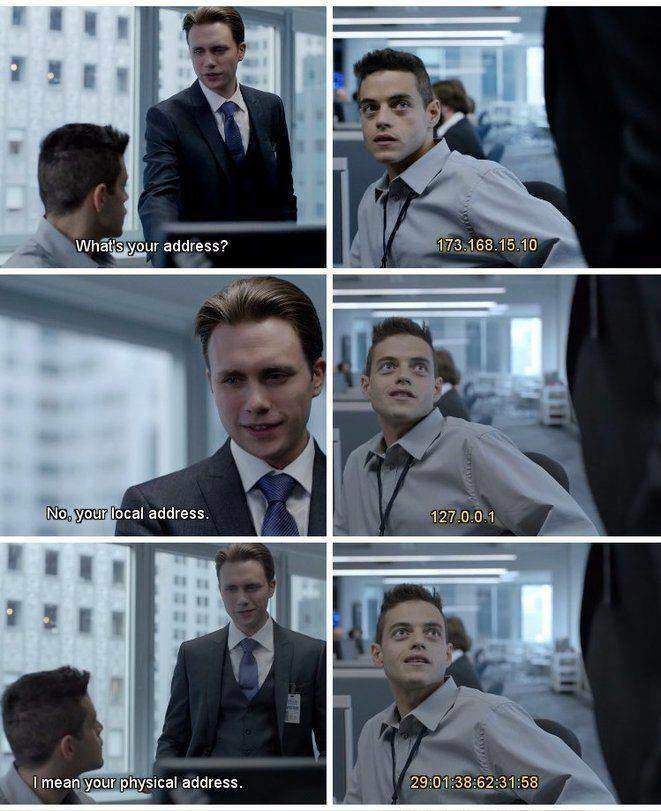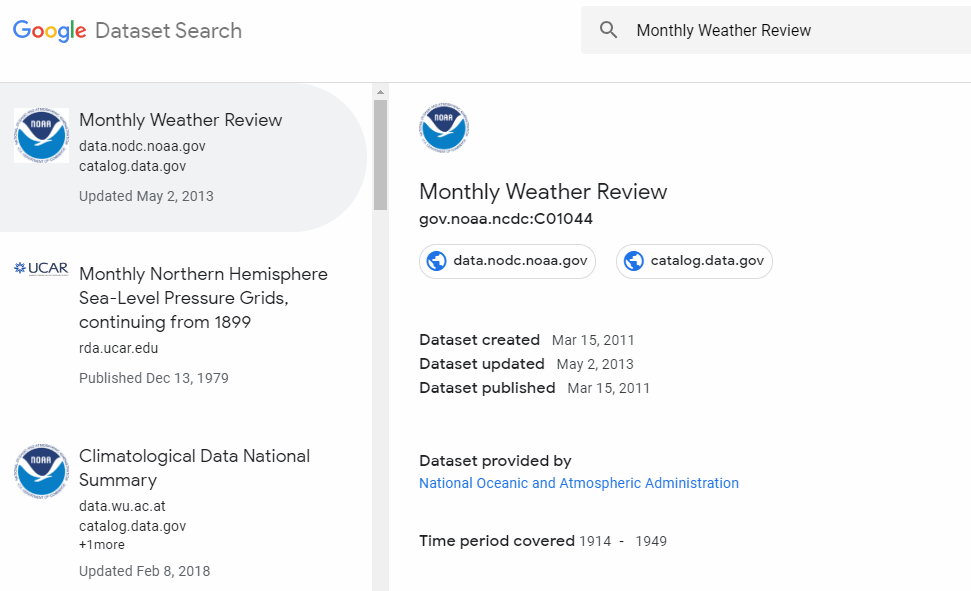Even if you don’t know what they actually are, if you use the internet, one of the first things you’ll stumble upon are URLs. We also call them addresses sometimes. You probably don’t spend much time thinking about them, but the World Wide Web is actually built from the ground up on URLs. Every time you access or link to a web page, you use a URL.
Google implied that “URLs must die”. But, is a world without URLs possible?

Follow along and let’s jump a little deeper into this topic to see what Google has in plan and, maybe, how an internet without URLs would look like. Also, keep in mind that this is mostly supposition, so please do feel free to open a conversation in the comments section!
Well, all that might be susceptible to change, as Google allegedly claimed that in order to have a server internet, “URLs must die”. However, the wording is more of a click bait rather than a fact.
- What Exactly Are URLs?
- Why Does Google Want to Kill URLs?
- How Does the Internet Look Like Without URLs?
- How Would SEO Work Without URLs?
What Exactly Are URLs?
URLs are very complex in theory, but in practice they are very simple to use and understand.
URLs stand for Uniform Resource Locator and are often referenced to as a web address.
Put simply, it’s the address used to access a desired location/web page/resource.

As an analogy, the browser is like a courier and the resource is like the contact person for delivery.
For example, if I want to publish a file.pdf document on the web, I need to host it somewhere. In order to host it, I need a server. The server will be assigned an IP which will tell us many things about the location. This is the country and city.
The server is also assigned a specific domain or hostname (or multiple ones). Let’s say that’s the street and building.
However, I’ll only store my PDF file in a specific place, let’s say a folder called resources. That will be the apartment.
Then, I actually need to specify its name, to know exactly where I want to get.
The final destination will be something like https://www.domain.com/resources/file.pdf
Why Does Google Want to Kill URLs?
Well, as stated in the introduction, Google never said that it wants to remove URLs completely.
In an interview with Wired the Chrome Engineer Manager, Adrienne Porter Felt talked about “making identity understandable to everyone” and “the way URLs are displayed”.
Note the key word here, which is ‘displayed’. Not killed, not removed, but displayed.
But let’s just image for a second that Google actually said the phrase “In order to make the internet a safer place, URLs MUST DIE!!!”. Try it and maybe use the Skeletor voice as well.

Google has fought to make URLs prettier and, therefore, easier to understand. We all know the “use pretty URLs” phrase. This means that instead of having https://yourwebsite.com/index/case-studies-242v43x/traffic-increase?ctcid=42542&bb=1425f you’d have something like https://yourwebsite.com/how-to-increase-traffic/.
Pretty URLs are helpful in some ways. Users can make an idea about the topic of the web page by simply looking at the URL. Also, longer and weird URLs often seem suspicious and users might avoid following them.
The article louring users with the murderous Google click bait also mentions a study made by McAfee which states that cybercrime costs the world $600 billion and it’s growing. The study only mentions the word ‘URL’ once and it involves various types of attacks, many of which have nothing to do with URLs.
The article does point out that URL shorteners might affect the link between web identity and URLs and hackers might take advantage of this to mask malicious websites. However, URL shorteners are merely a redirect which could be set up cheap and easy using any domain.
It’s true that the easiest way to get infected with any sort of virus is through accessing the wrong URL.
However, this is a link problem, as usually you won’t be typing your way into a ransomware.
Simply hiding the URL from the user in Chrome won’t help at all. A malicious URL could be hidden underneath an anchor text, on any website, at any time. It could be your best friend’s Facebook account that’s hacked and sends malicious URLs. You won’t even think before clicking, thinking it’s your friend and it must be safe.
The best way to protect yourself against cyber attacks is to be informed and always a little cautious!
Have a watch at this and you’ll understand that most of the time, hackers simply use the personal information you leak publicly against you. They might be at an internet cafe, reading what you type when you don’t access a secure website.
So, next time you post something on Facebook, think twice. Make sure you also inform others about this.
How Does an Internet Without URLs Look Like?
Although Google never actually said that this was a possibility, there’s a chance they might try it!
We’re still in the realm of speculation, but there’s actually some evidence for it.
If Google makes the web less open, they might be able to completely remove URLs.
The first thing I want to mention is Google AMP. I talked about Google AMP in the past and debated whether it’s a good thing or a bad thing.
Whatever your thoughts are on Google AMP, one thing is clear: a URL-less world would resemble the AMP initiative. So far, AMP lists everything on Google’s servers, so you don’t actually need to use any URLs, except Google.com.
But you still use URLs… and they still exist.
You see… It’s almost impossible to imagine an open web without URLs. You need some sort of… identifier to reach a resource or location on the web. If it’s not an address, it’s an IP. If it’s not an IP, it’s a host name and so on.
One friend of mine once told me “If you think you have a big imagination, try imagining a new color”. (inside joke: our colleague Cornelia might have a chance, as she’s color blind and hasn’t yet tried any of those glasses).
URLs are very similar to real live physical addresses, so if you can imagine a world without addresses… then you probably can imagine an open web without URLs.

However, if the web is less open, then Google can just be one single app which hosts all content. This way it can have control over malicious URLs… and everything else.
The second thing I want to mention is Google Data Search. It’s a search engine launched in September 2018 and it’s targeted at journalists and scientists. It looks like it’s taking advantage of something similar to structured data in order to figure out bullet points, such as release date, author and description.
Google Data Search is the closest we can find as to how a search engine would look like without URLs , although the content within the results does contain links (and URLs).

If Google really considers URLs a threat to its users, then the only way of dealing with it is not let users access any URLs, at least not through Chrome. This means that Google will have to host all the content, so that users only have contact with Google’s servers and its own (hidden) URLs.
This sounds good for the user, but in reality there are tons of issues. How will advertising work? How will website owners make money? Will they still publish content? Will they get paid by Google?
How Would SEO Work Without URLs?
In a world without URLs, SEO would pretty much work the same. The only thing missing from the algorithm completely would be backlinks (a backlink analysis tool company’s worst nightmare).
However, we all know that is possible, since Yandex (the Russian search engine) doesn’t use backlinks in its algorithm. Google has tried this in the past (back when Cutts ruled the bots) but it hasn’t worked out for them, as the results came up a lot worse.
I don’t know about that though, as if you used Google translate to translate “anything + torrent” in Russian and then search it on Yandex, you’ll definitely find anything you want for free. And all that without any backlinks in the algorithm!
So, backlinks might be replaced by what we now call citations, in local SEO. It’s basically the same thing as a branded backlink, but without the link. It would work in a similar way Brand Mentions works to notify you about new mentions.
Other than that, probably nothing much would change.
Content, CTR and UX will still be the most important factors when it comes to positioning things in search engines, along with other basic things, such as keywords in titles and how fast the resource loads (it shouldn’t be an issue anymore though, if Google hosts everything).
Conclusion
So… what do you think? Is an internet without URLs even possible? How would SEO look in a world where URLs don’t exist? Do you think Google is actually trying to solve a problem or is it trying to solve its own interests to gain more control over the internet?

 Site Explorer
Site Explorer Keyword tool
Keyword tool Google Algorithm Changes
Google Algorithm Changes

Its really amazing article.
Thanks Adrian Cojocariu.
Glad you liked it!
I don’t think it’s good idea. I’d rather stick to URL kind of model right now. Even I’m not sure using AMP